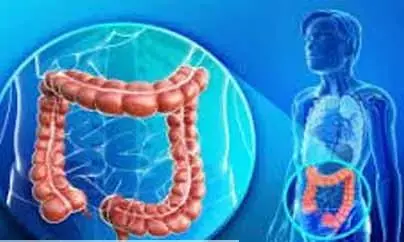- Home
- Medical news & Guidelines
- Anesthesiology
- Cardiology and CTVS
- Critical Care
- Dentistry
- Dermatology
- Diabetes and Endocrinology
- ENT
- Gastroenterology
- Medicine
- Nephrology
- Neurology
- Obstretics-Gynaecology
- Oncology
- Ophthalmology
- Orthopaedics
- Pediatrics-Neonatology
- Psychiatry
- Pulmonology
- Radiology
- Surgery
- Urology
- Laboratory Medicine
- Diet
- Nursing
- Paramedical
- Physiotherapy
- Health news
- Fact Check
- Bone Health Fact Check
- Brain Health Fact Check
- Cancer Related Fact Check
- Child Care Fact Check
- Dental and oral health fact check
- Diabetes and metabolic health fact check
- Diet and Nutrition Fact Check
- Eye and ENT Care Fact Check
- Fitness fact check
- Gut health fact check
- Heart health fact check
- Kidney health fact check
- Medical education fact check
- Men's health fact check
- Respiratory fact check
- Skin and hair care fact check
- Vaccine and Immunization fact check
- Women's health fact check
- AYUSH
- State News
- Andaman and Nicobar Islands
- Andhra Pradesh
- Arunachal Pradesh
- Assam
- Bihar
- Chandigarh
- Chattisgarh
- Dadra and Nagar Haveli
- Daman and Diu
- Delhi
- Goa
- Gujarat
- Haryana
- Himachal Pradesh
- Jammu & Kashmir
- Jharkhand
- Karnataka
- Kerala
- Ladakh
- Lakshadweep
- Madhya Pradesh
- Maharashtra
- Manipur
- Meghalaya
- Mizoram
- Nagaland
- Odisha
- Puducherry
- Punjab
- Rajasthan
- Sikkim
- Tamil Nadu
- Telangana
- Tripura
- Uttar Pradesh
- Uttrakhand
- West Bengal
- Medical Education
- Industry
Delayed ileostomy closure increases odds of Clostridium Difficile infection: Study

A diverting ileostomy is typically performed to divert intestinal contents in high-risk colorectal anastomoses. Ileostomy closure is associated with high rates of post-operative Clostridium difficile infection (CDI). Risk factors for the development of Clostridium difficile infection are unclear, however, a correlation has been observed with delayed closure.
However, a delay to reversal of ileostomy of >365 days was associated with a higher incidence of Clostridium difficile infection post-operatively, a recent study reports as published in the Journal of Colorectal Disease.
Simon J G Richards and colleagues from the Colorectal Surgical Unit, Department of General Surgical Specialties, Royal Melbourne Hospital. Melbourne, Australia aimed to assess the odds of developing Clostridium difficile infection in patients who had a delay to reversal of ileostomy, compared to those who had no delay.
A retrospective cohort study was conducted of patients undergoing reversal of ileostomy at a single tertiary centre. A delay to reversal of ileostomy was defined if the procedure was performed at >365 days following the index procedure.
Clostridium difficile infection was defined as the presence of Clostridium difficile toxin associated with diarrhoea. Univariable logistic regression analysis was performed to estimate odds of the infection for each co-variable, comparing patients who had a delay to reversal of ileostomy with those who did not. Multivariable logistic regression analysis was used to adjust for the potential confounding effects of covariables.
The study results showed that of the 195 patients, 11 (5.6%), developed post-operative Clostridium difficile infection. Multivariable analysis showed that delay to reversal of ileostomy was associated with a nearly 7-fold increase in odds of Clostridium difficile infection (OR = 6.95, CI: 1.06-81.6; p-value =0.03).
As a result, the authors concluded that "a delay to reversal of ileostomy of >365 days was associated with a higher incidence of Clostridium difficile infection post-operatively. Careful consideration should be given to the timing of reversal and appropriate preoperative counselling of patients."
Dr. Nandita Mohan is a practicing pediatric dentist with more than 5 years of clinical work experience. Along with this, she is equally interested in keeping herself up to date about the latest developments in the field of medicine and dentistry which is the driving force for her to be in association with Medical Dialogues. She also has her name attached with many publications; both national and international. She has pursued her BDS from Rajiv Gandhi University of Health Sciences, Bangalore and later went to enter her dream specialty (MDS) in the Department of Pedodontics and Preventive Dentistry from Pt. B.D. Sharma University of Health Sciences. Through all the years of experience, her core interest in learning something new has never stopped. She can be contacted at editorial@medicaldialogues.in. Contact no. 011-43720751
Dr Kamal Kant Kohli-MBBS, DTCD- a chest specialist with more than 30 years of practice and a flair for writing clinical articles, Dr Kamal Kant Kohli joined Medical Dialogues as a Chief Editor of Medical News. Besides writing articles, as an editor, he proofreads and verifies all the medical content published on Medical Dialogues including those coming from journals, studies,medical conferences,guidelines etc. Email: drkohli@medicaldialogues.in. Contact no. 011-43720751


